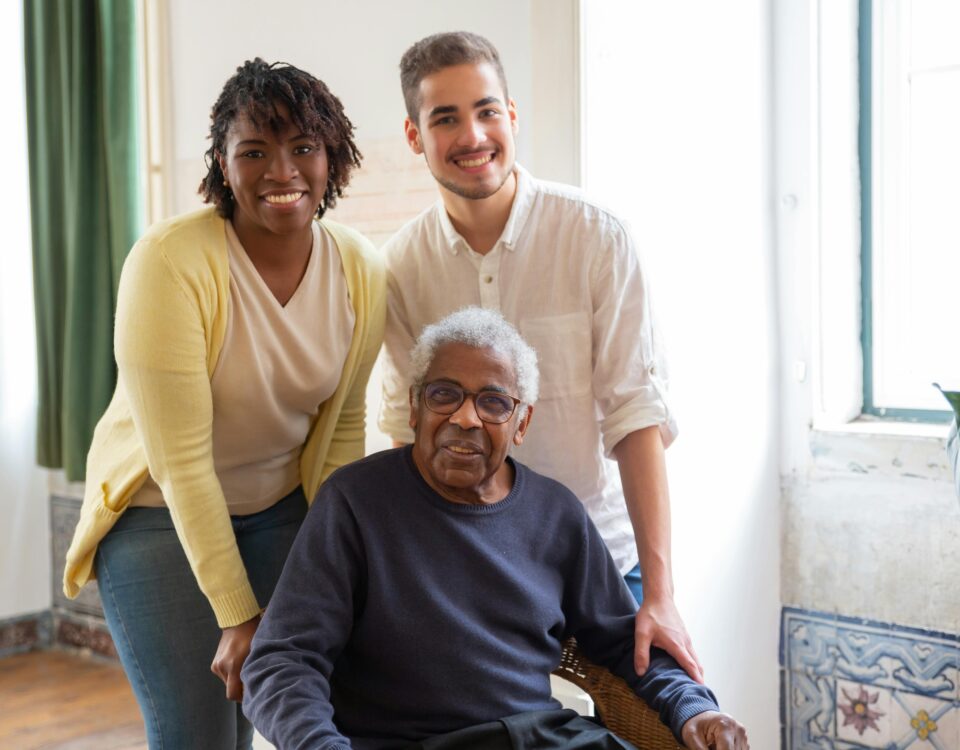You can’t always be there. But we can.
Improving Oral Health in the Elderly

Good Cheer: Safely Decorating for the Holidays in Your Senior’s Home
November 20, 2020
Inspirational Quotes for Taking Care of Elderly Parents
July 13, 2022Improving Oral Health in the Elderly
There are many aspects to staying healthy at every age, but senior oral health care is unfortunately one of the most overlooked categories. Improving oral health in the elderly starts with awareness. Seniors have increased chances to lose teeth, experience dental decay, and get gum disease. Here are some guidelines to promote healthy teeth for older folks.

Make Checkups a Priority
Regular dental checkups are important for any age group, but seniors especially benefit from the support of professional care, guidelines, and recommendations for how to preserve their oral health. The reality is that home care, even when seniors adequately brush and floss every day, cannot solely provide what is required to improve or even maintain a decent level of oral health in the elderly. There has to be supplementary support from a trusted professional at a dentist’s office.
Senior caregivers are amazing in many ways, but there is no substitute for a specifically trained dentist who focuses solely on senior oral health care. In general, people get biannual checkups at the dentist, but some seniors may need to visit more frequently. Each case is unique, so caregivers should assist seniors who live together to work through their own personalized care plan.
Watch What Goes into The Mouth
One of the best ways to improve oral health in the elderly is to monitor what they consume.
Everyone wants their teeth to last a lifetime, but that doesn’t always mean healthy habits are practiced. Ideally, seniors or their caregivers will keep track of what foods, drinks, and substances are consumed. Some things to avoid right off the bat include staining agents such as:
- Coffee
- Tea
- Red wine
- Tobacco
These substances cause mild to severe discoloration of the teeth, especially with consistent use over time. They can also dry out the mouth. It might be unrealistic to cut out a certain staining agent entirely from a senior’s life, but they may be able to cut back with the support of a dedicated caregiver.
Even if avoiding problematic consumables is difficult, the effects can be somewhat mitigated through active awareness and alternatives. For example, if a senior’s mouth is getting too dry due to tobacco use, they should drink more water and try chewing sugarless gum to satisfy oral cravings, hopefully in the interest of cessation to prevent any more severe health risks. To improve oral health in the elderly, caregivers should recommend courses of action that align with the dentist’s plan for that senior patient. Support from caregivers will help the elderly focus on their oral health goals.
Stay Aware of Gum Status and Health
Improving senior oral health care is about more than just teeth. The mouth naturally ages, just like other parts of the body. Some of the effects that aging causes are gum recession and teeth becoming more brittle. Proactive caregivers should stay on top of the oral health situation for seniors, making sure that they don’t have any major oral health concerns or discomfort.
While teeth and gums becoming worn down over time is a natural occurrence, it’s still critical to monitor their health status. Gums thin and recede with age, which exposes the softer roots of the teeth. This makes it easier to get cavities and gum disease. Pay special attention to how the gums look and feel. If there’s any itching or discomfort, reach out to a dentist right away. Staying aware of gum health is a critical aspect when maintaining good oral health in the elderly.

Get the Support You Need
No two people’s oral care plan will look exactly the same, but there are general ways for seniors to properly improve their oral health. Improving oral health in the elderly works on a case-by-case basis, but you don’t have to do it on your own.
Secure proven and trusted home care for seniors at 1Heart. We’re excited to help you get the support you need!

